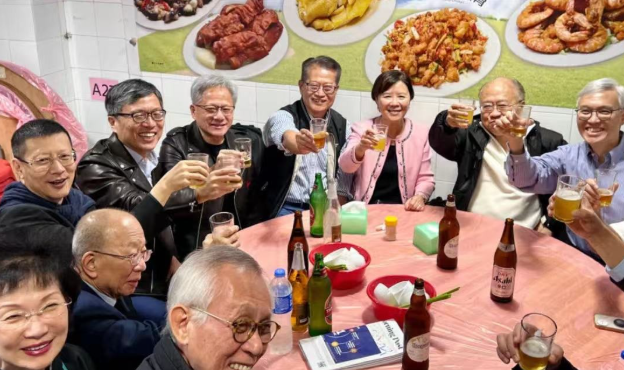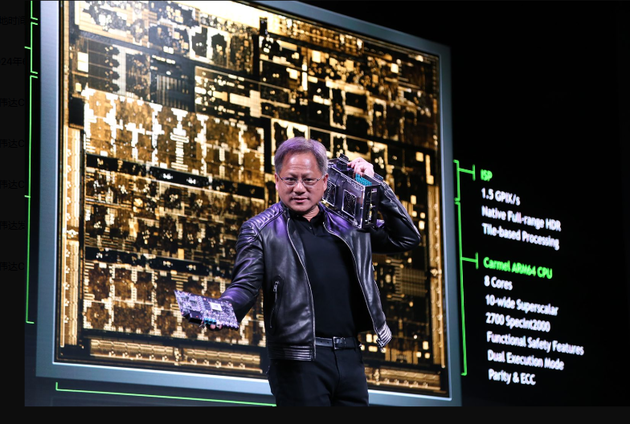
Nvidia CEO Jensen Huang has been making the rounds in Asia, focusing on bolstering AI infrastructure across the region.
On November 24th, Huang was spotted at a popular food stall in Hong Kong's Sham Shui Po district, sharing a table with Hong Kong's Financial Secretary Paul Chan, Hong Kong University of Science and Technology (HKUST) President Nancy Ip, and Sequoia Capital's Neil Shen, among others.
Media reports indicate that over the past month, Huang has been intensively visiting Asia to promote the layout of AI infrastructure.
Huang's recent visits to Japan and India have been aimed at deepening cooperation in AI. In Japan, he held a dialogue with SoftBank founder Masayoshi Son, discussing plans to build Japan's largest AI factory, leveraging Nvidia's technology. This follows a missed investment opportunity a decade ago that Son and Huang reminisced about, promising to enhance their partnership in the new wave of AI.
In India, Huang engaged with Asia's richest man, Mukesh Ambani, Chairman of Reliance Industries, to discuss the construction of AI infrastructure. Huang anticipates a nearly 20-fold increase in Nvidia's computing power in India within a year.
On November 23rd, Huang was awarded an honorary doctorate in engineering from HKUST, where he delivered a speech, emphasizing AI's pivotal role in resetting the world. He highlighted HKUST's contributions to AI research and innovation, positioning the university as a leader in the field.

Photo/VCG
Huang also touched on Nvidia's relationship with China, noting the company's 25-year presence in the market, with research centers in Hong Kong, Shanghai, Beijing, and Shenzhen, and its collaboration with HKUST alumni. He emphasized AI's revolutionary impact across scientific fields and industries, from software and machine learning to hardware modernization, and its potential in drug discovery and physical systems research.
Nvidia reported a Q3 net profit of $19.31 billion, a 109% increase from the previous year, on revenue of $35.082 billion, up 94% year-over-year. Despite exceeding Wall Street's average expectations, some market analysts suggest that Nvidia's growth, while robust, is slowing, indicating a potential downturn.
Huang dismissed concerns over supply constraints of Nvidia's new Blackwell architecture chips, stating they are now in full production with expected high demand. CFO Colette Kress confirmed that Blackwell chips will ship in Q4 and accelerate into next year.
Nvidia projects Q4 revenue to reach $37.5 billion, +/- 2%, suggesting a further slowdown in growth to 69.5%. While analyst consensus was at $37.1 billion, the highest prediction reached $41 billion.


 川公网安备 51019002001991号
川公网安备 51019002001991号





